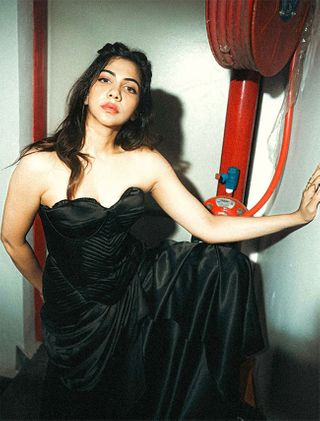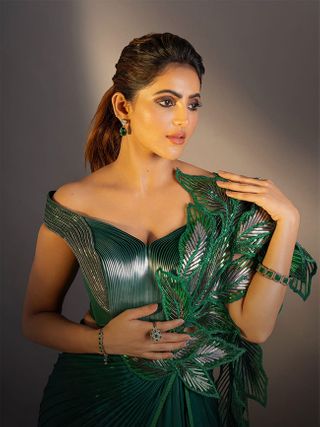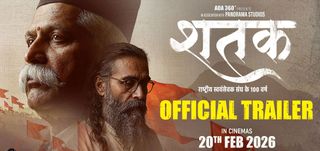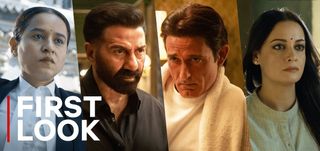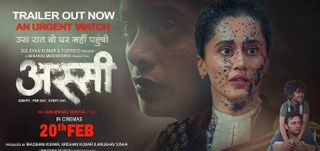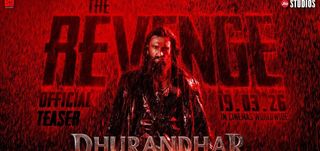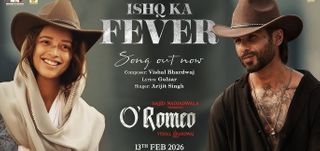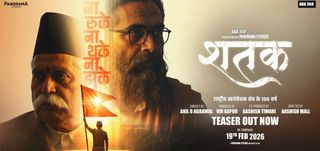Dobara Movie Review
It’s all about loving your present. Veer (Jackie Shroff) has moved on. He has a plush lifestyle, a pretty home with a wife Anjali (Mahima Chowdhary) to match.
Suddenly the past does a fast one on Veer. Like Rakhee in Ramesh Talwar's Baseraa , Riya (Raveena Tandon) sneaks out of a mental asylum to reclaim her rights on the man whom she loves to death or madness.
Dobara takes us into a psychological territory that's still quite alien to mainstream Hindi cinema. It talks to its characters in a mature and sensible voice and it lets them do the same in the narrative.
In a way, this film tries to do the opposite of what television soaps do with such frightening conviction. While soaps heighten emotions and stretch out the time span of events beyond all rationale, Dobara moves, albeit awkwardly, in reverse. The characters cope with the deepest stress and trauma in even tones.
There're no melodramatic slopes. Even the confrontation sequence between Vir's past woman and present wife in a hotel lobby raises the volume only to the extent that we would expect from ordinary people in extraordinary circumstances.
The most selfconsciously striking feature of Shashi Ranjan's direction is its time passages. Though it conveys an emotional velocity that runs through several lives and years, the actual plot unfolds merely over a few days, as the Vir and Riya drive to Goa to catch up with a son they have not known.
As Vir's suspicious and jealous wife follows them to Goa, the triangle with its unbecoming reverberations, begins to resemble Mahesh Bhatt's Arth .
The triangle—like the plot—is further stretched to a quadrangle when Anjali out of sheer bitterness begins to flirt with a suave co-passenger to Goa (played by Pakistani actor Muannar Rana who's fairly flirty in flight). Many portions of the film thereafter begin to resemble sloppily re-designed scenes from Mike Nichols' Who's Afraid Of Virginia Woolfe and Elia Kazan's A Streetcar Named Desire .
"You two women are driving me nuts," says Shroff to his two co-stars towards the end when a creative chaos has overtaken the director's better and certainly honourable judgement.
Though an inspired piece of writing on paper echoing the dark roomy emotions of Eastern European cinema, Dobara fails miserably to connect its lofty aspirations with a cogent narrative. The pace is monstrously uneven with Anu Malik's hummable songs (undoubtedly well-worded by Javed Akhtar) breaking into the intense triangle like a badly brought up a child which wants to grab the parents' attention at any cost.
Though the characters converse in convincing tones, they finally don't seem to say anything interesting or worthwhile. Many loops in the narrative, such as the whole clumsily crafted reunion –sequence with the long-lost son, are plainly selfindulgent and bland.
What works are some random moments and images. The recurrent reference to K Balachander's film Ek Duje Ke Liye, which serves as a central romantic motif in the plot, imparts a kind of genteel mythology to a piece of cinema with interesting possibilities that finally reach nowhere.
What makes this honourable failure forgivable, even watchable in parts, is the overall sincerity of the cast and crew.
Ranjan seeks desirable inspiration from various sophisticated indigenous and international sources to come up with a film that's a painful pastiche of influences and references all adding up a muddled and exasperating whisper of possibilities.
Shroff, like the conflicted husband Kulbhushan Kharbanda in Arth blends with the bleaching colours of pain and nostalgia. Mahima has earlier done a very similar role of a wife who's suddenly confronted by her husband's past in Prakash Jha's Dil Kya Kare . Here she's surprisingly restrained, offsetting Raveena's character's overpowering exuberance to great advantage.
Raveena, as the hyper-strung Riya, is most certainly inspired by Smita Patil in Arth . She isn't the<






